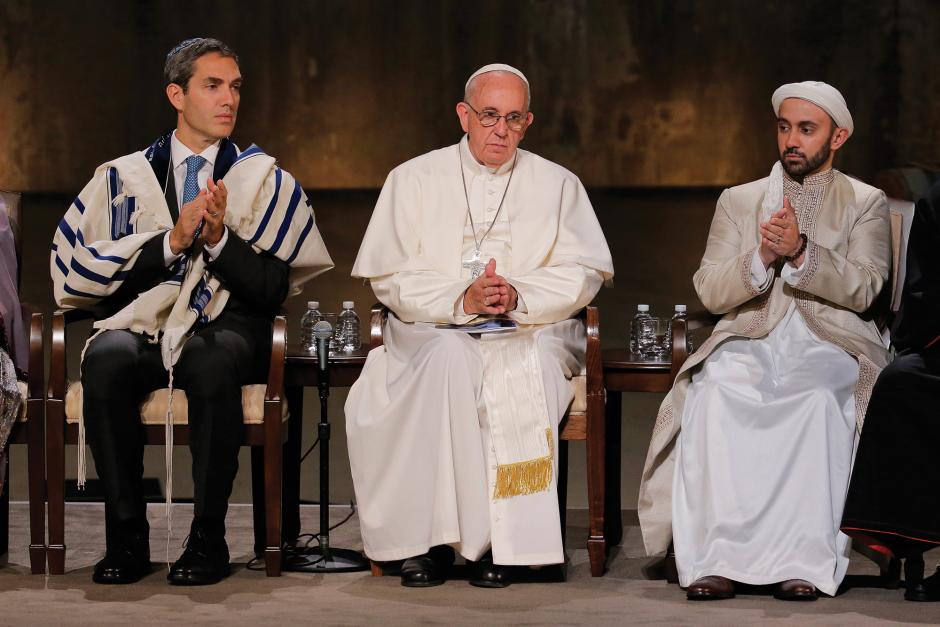The Religious Century
Jonathan Sacks January/February 2016The twenty-first century will be more religious than the twentieth for several reasons. First is that, in many ways, religion is better adapted to a world of global instantaneous communication than are nation states and existing political institutions.
Second is the failure of Western societies after World War II to address the most fundamental of human needs: the search for identity. The world’s great faiths offer meaning, direction, a code of conduct, and a set of rules for the moral and spiritual life in ways that the free-market, liberal democratic West does not.
The third reason has to do with demography. Worldwide the most religious groups have the highest birthrates. Over the next half century, as Eric Kaufmann has documented in his book Shall the Religious Inherit the Earth? there will be a massive transformation in the religious makeup of much of the world, with Europe leading the way. With the sole exception of the United States, the West is failing to heed the Darwinian imperative of passing on its genes to the next generation.
This leaves us little choice but to reexamine the theology that leads to violent conflict in the first place. If we don’t do the theological work, we will face a continuation of the terror that has marked our century thus far, for it has no other natural end.
The challenge is not only to Islam but also to Judaism and self-knowledge: “Our hands never shed innocent blood.”
As Jews, Christians, and Muslims, we have to be prepared to ask the most uncomfortable questions. Does the God of Abraham want His disciples to kill for His sake? Does He rejoice in holy war? Does He want us to hate our enemies and terrorize unbelievers? Have we read our sacred texts correctly? What is God saying to us, here, now? We are not prophets, but we are their heirs, and we are not bereft of guidance on these fateful issues.
As one who values market economics and liberal democratic politics, I fear that the West doesn’t fully understand the power of the forces that oppose it. Passions are at play that run deeper and stronger than any calculation of interests. Reason alone will not win this battle. Nor will invocations of such words as “freedom” and “democracy.” To some they sound like compelling ideals, but to others they are the problem against which they are fighting, not the solution they embrace.
Today Jews, Christians, and Muslims must stand together in defense of humanity, the sanctity of life, religious freedom, and honor of God Himself. The real clash of the 21st century will not be between civilizations or religions but within them. It will be between those who accept and those who reject the separation of religion and power.
What then should we do? We must put the same long-term planning into strengthening religious freedom as was put into the spread of religious extremism. The proponents of radical Islam have worked for decades to marginalize the more open, gracious, intellectual, and mystical traditions that in the past were the source of Islam’s greatness.
It has been a strategy remarkable for its long time horizon, precision, patience, and dedication. If moderation and religious freedom are to prevail, they will require no less. We must train a generation of religious leaders and educators who embrace the world in its diversity and sacred texts in their maximal generosity.
There must be an international campaign against the teaching and preaching of hate. Education in many Islamic countries remains a disgrace. If children continue to be taught that nonbelievers are destined for hell and that Christians and Jews are the greater and lesser Satan, if radio, television, Web sites, and social media pour out a nonstop stream of paranoia and incitement, then Article 18 of the Universal Declaration of Human Rights, with its commitment to religious freedom, will mean nothing. All the military interventions in the world will not stop the violence.
We need to recover the absolute values that make Abrahamic monotheism the humanizing force it has been at its best: the sanctity of life, the dignity of the individual, the twin imperatives of justice and compassion, the insistence on peaceful modes of resolving conflicts, forgiveness for the injuries of the past, and devotion to a future in which all the children of the world can live together in grace and peace.
These are the ideals on which Jews, Christians, and Muslims can converge, widening their embrace to include those of other faiths and none. This does not mean that human nature will change, or that politics will cease to be an arena of conflict. All it means is that politics will remain politics and not become religion.
Excerpted from Not in God’s Name: Confronting Religious Violence, by Lord Sacks, former chief rabbi of the United Hebrew Congregations of the British Commonwealth. Published by Shocken, 2015. A longer excerpt from the book recently appeared in The Wall Street Journal Review under the title “Swords Into Plowshares.” The subhead was “Islamic State’s creed embodies evil in the name of a sacred cause. To defeat it, we must recover the values that can bring Jews, Christians, and Muslims together.
Article Author: Jonathan Sacks
Lord Jonathan Sacks is the former chief rabbi of the United Hebrew Congregations of the British Commonwealth.
